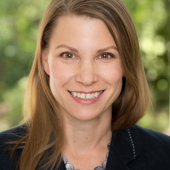
Lori Thorlakson, PhD, MSc (London School of Economics), BA(Hons) Queen's University
Contact
Professor, Faculty of Arts - Political Science Dept
- thorlaks@ualberta.ca
- Phone
- (780) 492-2282
- Address
-
11-20 Tory (H.M.) Building
11211 Saskatchewan Drive NWEdmonton ABT6G 2H4
Chair, Faculty of Arts - Political Science Dept
- thorlaks@ualberta.ca
Overview
Area of Study / Keywords
Political Parties Multi-level Systems Energy Transition Democracy European Union
About
Lori Thorlakson holds an MSc and PhD from the London School of Economics. Before coming to the University of Alberta in 2008, she was a lecturer at the University of Nottingham, UK, and a Jean Monnet fellow at the European University Institute in Florence. At the University of Alberta, she has held a Jean Monnet Chair and was the founding director of the European Union Centre of Excellence, from 2013 - 2016. She is the director of the Faculty's School in Cortona, Italy.
Research
Dr. Thorlakson is co-PI (with Melanee Thomas at the University of Calgary) of a Future Energy Systems project, Political Pathways of Energy Transition. She also leads an NSERC-funded project on political aspects of electricity grid transformation.
Dr. Thorlakson's research focuses on issues of party competition and representation in multi-level systems, including federations and the European Union. She studies party organization, party system change and voter behaviour, and how these three dimensions of political competition combine to shape the nature of representation in democratic states. She is also involved in research that assesses the impact of the EU on democratic development, particularly in post communist states, and research that examines the development of the European Parliament and representation in the EU.
Dr. Thorlakson would welcome supervising graduate students working on energy transition, as well as on questions in the field of comparative politics related to parties, elections and voter behaviour, especially in multilevel contexts. She is willing to supervise work that uses qualitative or quantitative methods.
Courses
POL S 486 - Topics in European Politics
Current debates in Europe, including the emergence of new radical right parties, green parties and movements, market liberalization and political change in Eastern and Central Europe, and the resurgence of nationalist discourses. A variable content course, which may be repeated if topics vary. Prerequisite: One of POL S 235 (or 230) or Department consent.